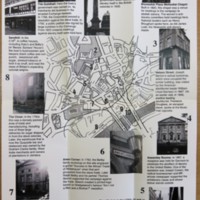
The Roots Initiative
identity on tyne is a group for writers and artists of colour in North-East England. The Roots Initiative was their response to the bicentenary, in partnership with the Literary and Philosophical Society. The writer Sheree Mack examined the region's involvement in the slave trade and the abolition movement through historical documents, creative writing and poetry. A heritage walk around Newcastle highlighted the events, individuals and places involved in the slave trade, slavery and the abolition movement in the North-East.
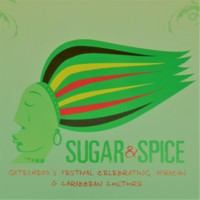
Sugar & Spice
Sugar & Spice was Gateshead's festival celebrating African and Caribbean culture. Held in October 2007, highlights of the programme included 'Mama Africa', South African singer Miriam Makeba; the opera 'Mary Seacole'; a massed performance of 'On Liberation Street' featuring local performers and singers alongside the Grand Union Orchestra; and 'Roll Jordan Roll' featuring jazz trumpeter Abram Wilson performing with the London Community Gospel Choir. The festival weekend also featured street theatre; jazz,blues and gospel music; a light show; and children's arts activities.
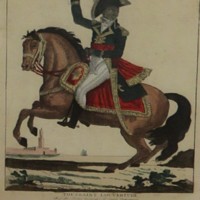
Freedom Think Tank
Freedom Think Tank was a time limited Black-led voluntary group established to influence the agendas of organisations in the North East commemorating the bicentenary of the abolition of the slave trade. The group also organised commemorative events, focusing on themes of promoting social solidarity and raising awareness of the participation of Black people in abolition.
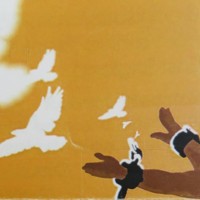
Liberation Lullabies
The North East Cultural Diversity Arts Forum (NECDAF) is an umbrella organisation for arts and cultural organisations promoting arts practitioners from ethnic minority communities in North East England. Liberation Lullabies was their event to commemorate the Abolition Act at the Tyneside Cinema in Gateshead. The show featured Congolese singer Robert Maseko and his band Congobeat, and the Sun Dance group performing traditional African dance,
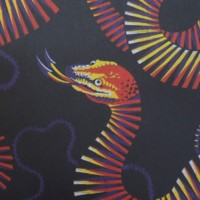
Into Africa
Into Africa was an exhibition held at the Dorman Museum in Middlesbrough, which examined the textile collaboration between Britain and West Africa after the abolition of the transatlantic slave trade. The exhibition focused on the textile samples of Christopher Dresser, the most prominent industrial product designer of the Victorian period. The samples were originally made for European markets, but increasingly became popular in West African textile trades in the late 19th century. The exhibition placed the samples in the context of African textile history, the Lancashire cotton trade and modern day exports.
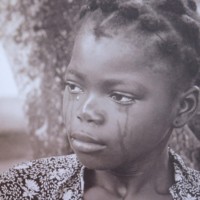
Remembering Slavery Exhibition
Remembering Slavery 2007 involved museums, galleries and other cultural organisations across the North East of England in a programme of exhibitions, events, performances, lectures and activities to explore the themes of slavery and abolition, and identify connections with the region.
The Remembering Slavery exhibition focused on objects, paintings, documents and other historical material relating to the transatlantic slave trade and its legacy. The exhibition and associated programme of activities opened at the Discovery Museum in Newcastle and then toured to South Shields Museum and Art Gallery; Sunderland Museum and Winter Gardens; and the Laing Art Gallery. Whilst at the Discovery Museum, the historical exhibition was accompanied by a photographic exhibition, ‘Human Traffic’, produced by Anti-Slavery International, documenting the trafficking of children in Benin and Gabon in West Africa. Whilst at the Laing Art Gallery, the exhibition was shown alongside ‘La Bouche du Roi’ by Romauld Hazoumé, a contemporary installation based on the ‘Brookes’ slave ship.
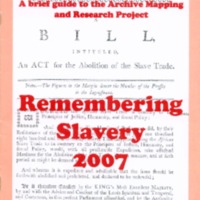
Remembering Slavery Archive and Mapping Project
Remembering Slavery 2007 involved museums, galleries and other cultural organisations across the North East of England in a programme of exhibitions, events, performances, lectures and activities to explore the themes of slavery and abolition, and identify connections with the region.
The Remembering Slavery Archive Mapping and Research Project, led by the Literary and Philosophical Society in Newcastle and assisted by local history groups, uncovered a large amount of archival material in the region’s institutions, exposing many hitherto unknown links between the North East and the slave trade. The participating record offices and libraries were Tyne and Wear Archives Service, the Literary and Philosophical Society Library, the Northumberland Record Office and the Robinson Library’s Special Collections at the University of Newcastle upon Tyne. This reassessment of the North East’s involvement in slavery and the slave trade led to new published research, including John Charlton's 'Hidden Chains: the Slavery Business and North East of England 1600-1865'. There was also a lecture programme at the Literary and Philosophical Society, including talks by Professor James Walvin. Several of the project volunteers published essays based on their research in 'North East History 39' (North East Labour History Society, 2008). The North East Slavery and Abolition Group was established among the project volunteers, and further work on slavery and abolition was included in the Society’s North East Popular Politics project (NEPPP), 2010-13. Much of the material found in the 2007 project has been loaded onto the NEPPP database.
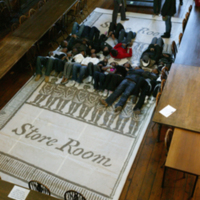
Changing Perspectives
Changing Perspectives was a community-based initiative based around the experiences of twenty-five African and Caribbean families from the North-East, to explore how their life in the UK contrasts with the lives of their ancestors. The project created a multimedia archive of cultural responses to celebrate the heritage of these families. This included oral testimonies, creative writing, photography, digital storytelling and art, emerging from a variety of community-led workshops. A series of workshops were held at Durham University Library, Archives and Special Collections (pictured), including a session aimed at children and young people, which focused on the experiences of children in the slave trade via extracts from the autobiography of Olaudah Equiano. Project outputs included a book, an interactive website, an exhibition of words and pictures of the community, an oral testimony collection, and series of documentary films. A key aim of the project was to promote community cohesion and develop cross cultural awareness and understanding.
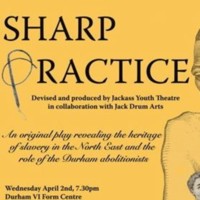
Sharp Practice
Inspired by archival research, ‘Sharp Practice’ was a touring play exploring the slave trade and the role of abolitionists from the North East of England in its demise (and, in particular, the work of Granville Sharp). The play was devised and produced by Jackass Youth Theatre, in collaboration with professional artists from Jack Drum Arts. Each performance was accompanied by an exhibition exploring the North East’s links to slavery and abolition, researched by members of the theatre group. Working with heritage professionals, their research took the performers to Newcastle, Hull, Liverpool, Gloucester, London and the University of Virginia.
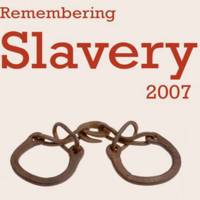
Remembering Slavery 2007
Remembering Slavery 2007 was a regional initiative involving museums, galleries and other cultural organisations across the North East of England in a programme of exhibitions, events, performances, lectures and activities to explore the themes of slavery and abolition, in both historical and modern contexts. The project sought to connect the North East with the slave trade, the plantation economies of the Americas, and the social and political movements for abolition.
Featured here are the 'What's On' guides detailing various initiatives across the region in 2007, plus a selection of postcards from the project.